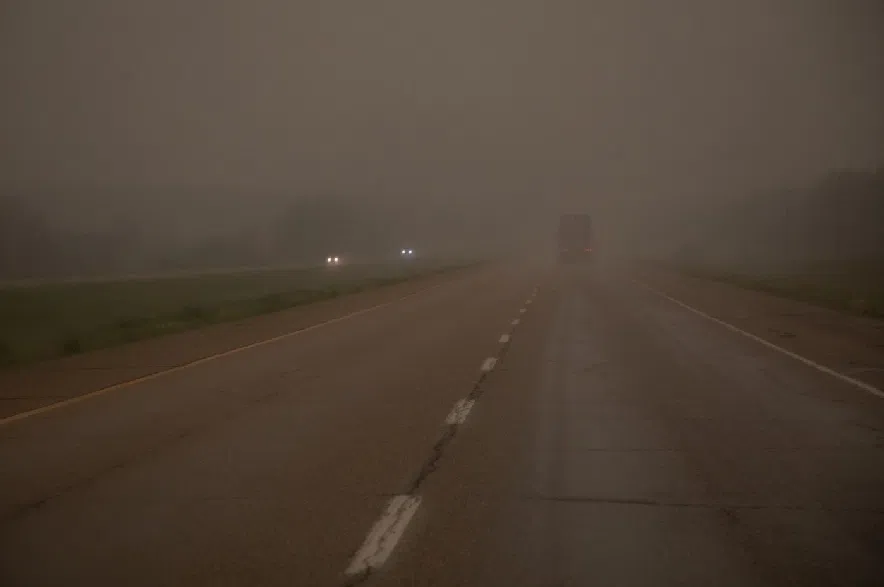A new international study co-authored by a Canadian researcher says climate change is contributing to thousands more wildfire smoke-related deaths than in previous decades.
The modelling study estimates that about 12,566 annual wildfire smoke-related deaths in the 2010s were linked to climate change, up from about 669 in the 1960s.
READ MORE:
- Wildfire smoke in Saskatoon beats 70-year record
- Wildfire smoke raises air quality risks for all in Saskatchewan
- Federal and provincial governments pledge $5.5 million for Jasper tourism attraction
Sian Kou-Giesbrecht, an assistant professor at Dalhousie University who contributed to the study, says the results attest to the importance of reducing planet-warming greenhouse gases.
She says the study did not find significant changes in smoke-related deaths from Canada’s boreal wildfires, suggesting that’s likely due to the country’s relatively small population size and how tricky it is to model forest fires in the region, given its unique mix of shrubs and peat.
The study indicates the biggest influence was found in South America, Australia and Europe.
The results, published Monday in the peer-reviewed journal Nature Climate Change, build on another study by the same research group that suggested climate change had increased the global area burned by wildfire by about 16 per cent from 2003 to 2019.
This report by The Canadian Press was first published Oct. 21, 2024.
Jordan Omstead, The Canadian Press







